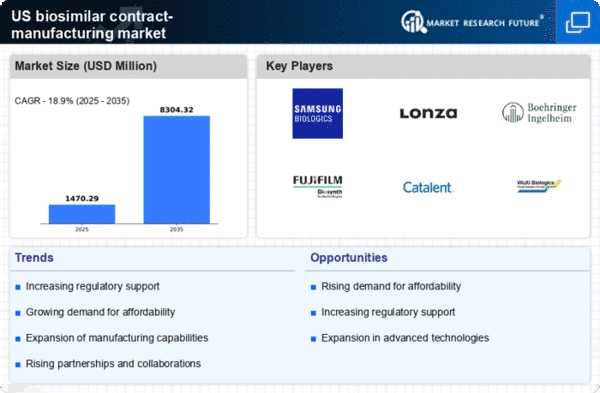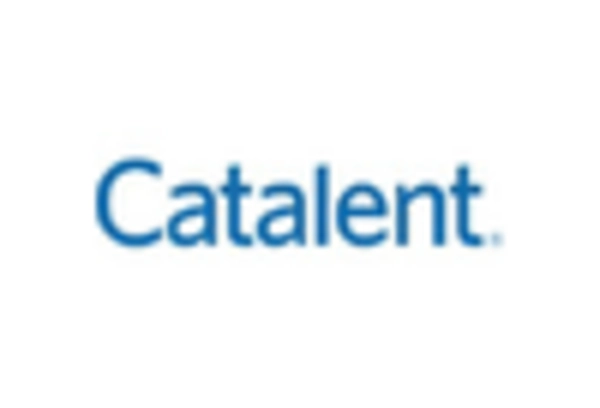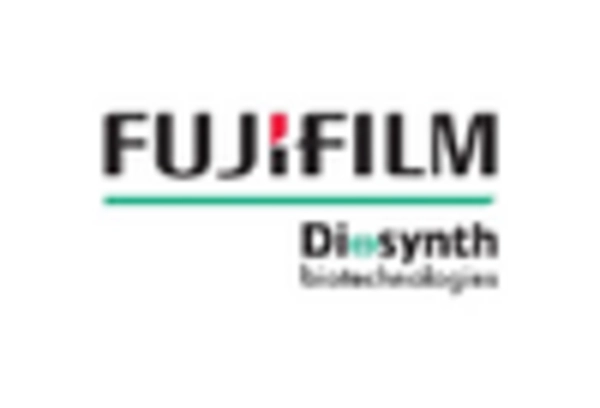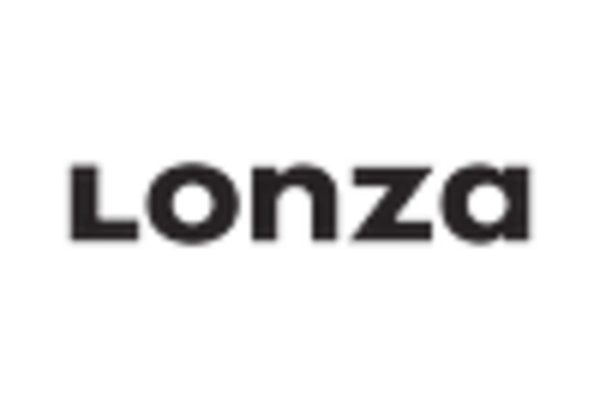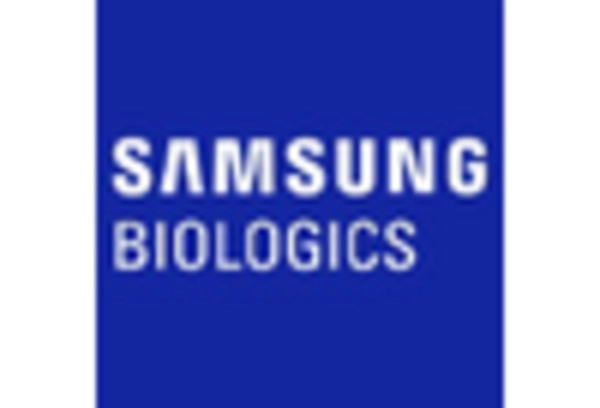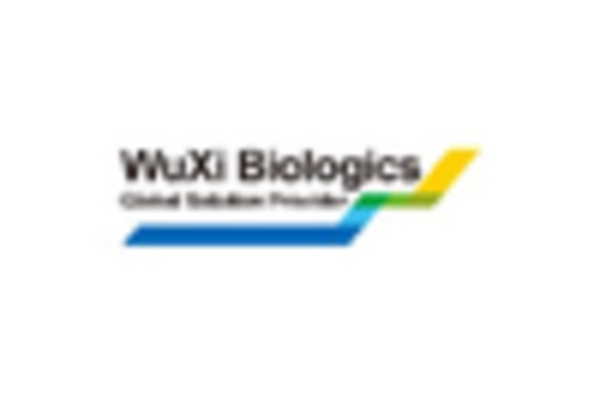Increasing Healthcare Expenditure
The rising healthcare expenditure in the US is a pivotal driver for the biosimilar contract-manufacturing market. As healthcare costs continue to escalate, stakeholders are increasingly seeking cost-effective alternatives to expensive biologics. In 2025, healthcare spending in the US is projected to reach approximately $4.3 trillion, with a significant portion allocated to biologics. This trend suggests that healthcare providers and payers are likely to favor biosimilars, which can offer similar therapeutic benefits at a reduced cost. Consequently, contract manufacturers specializing in biosimilars are positioned to benefit from this shift, as they provide essential services to meet the growing demand for affordable treatment options. The increasing focus on value-based care further emphasizes the need for cost-efficient solutions, thereby enhancing the prospects for the biosimilar contract-manufacturing market.
Increased Focus on Personalized Medicine
The shift towards personalized medicine is emerging as a key driver for the biosimilar contract-manufacturing market. As healthcare evolves, there is a growing recognition of the need for tailored treatment approaches that cater to individual patient profiles. Biosimilars, with their ability to mimic complex biologics, are well-suited to support this trend. In 2025, the market for personalized medicine is expected to reach $2.5 trillion, underscoring the potential for biosimilars to play a significant role in this paradigm shift. Contract manufacturers that specialize in biosimilars are likely to find new opportunities as healthcare providers increasingly seek to incorporate these products into personalized treatment plans. The alignment of biosimilars with the principles of personalized medicine may enhance their acceptance and utilization, thereby driving growth in the biosimilar contract-manufacturing market.
Advancements in Biomanufacturing Technologies
Technological advancements in biomanufacturing are transforming the landscape of the biosimilar contract-manufacturing market. Innovations such as single-use bioreactors and continuous manufacturing processes are enhancing production efficiency and reducing costs. These advancements enable contract manufacturers to produce biosimilars at a larger scale while maintaining quality and compliance with regulatory standards. In 2025, the market for biomanufacturing technologies is projected to grow by approximately 15%, reflecting the increasing adoption of these innovations. As manufacturers leverage cutting-edge technologies, they can respond more effectively to the rising demand for biosimilars, thereby positioning themselves competitively within the market. The integration of advanced manufacturing techniques is likely to play a pivotal role in the growth trajectory of the biosimilar contract-manufacturing market.
Growing Patient Population with Chronic Diseases
The increasing prevalence of chronic diseases in the US is a significant driver for the biosimilar contract-manufacturing market. As the population ages and lifestyle-related health issues become more common, the demand for biologic therapies is expected to rise. In 2025, it is estimated that nearly 60% of adults in the US will be living with at least one chronic condition, such as diabetes or arthritis. This surge in patient numbers necessitates the availability of effective and affordable treatment options, which biosimilars can provide. Contract manufacturers are thus likely to see heightened demand for their services as healthcare providers seek to incorporate biosimilars into treatment regimens. The biosimilar contract-manufacturing market is poised to expand as it addresses the needs of a growing patient population requiring ongoing care and management of chronic diseases.
Regulatory Support and Streamlined Approval Processes
Regulatory support plays a crucial role in shaping the biosimilar contract-manufacturing market. The US Food and Drug Administration (FDA) has implemented guidelines that facilitate the approval of biosimilars, thereby encouraging manufacturers to invest in this sector. The introduction of the Biologics Control Act and subsequent amendments have streamlined the pathway for biosimilar approvals, reducing the time and cost associated with bringing these products to market. As of 2025, the FDA has approved over 40 biosimilars, indicating a growing acceptance of these products within the healthcare system. This regulatory environment not only fosters innovation but also instills confidence among stakeholders, which is likely to drive demand for contract manufacturing services in the biosimilar sector. The supportive framework provided by regulatory bodies is essential for the sustained growth of the biosimilar contract-manufacturing market.


